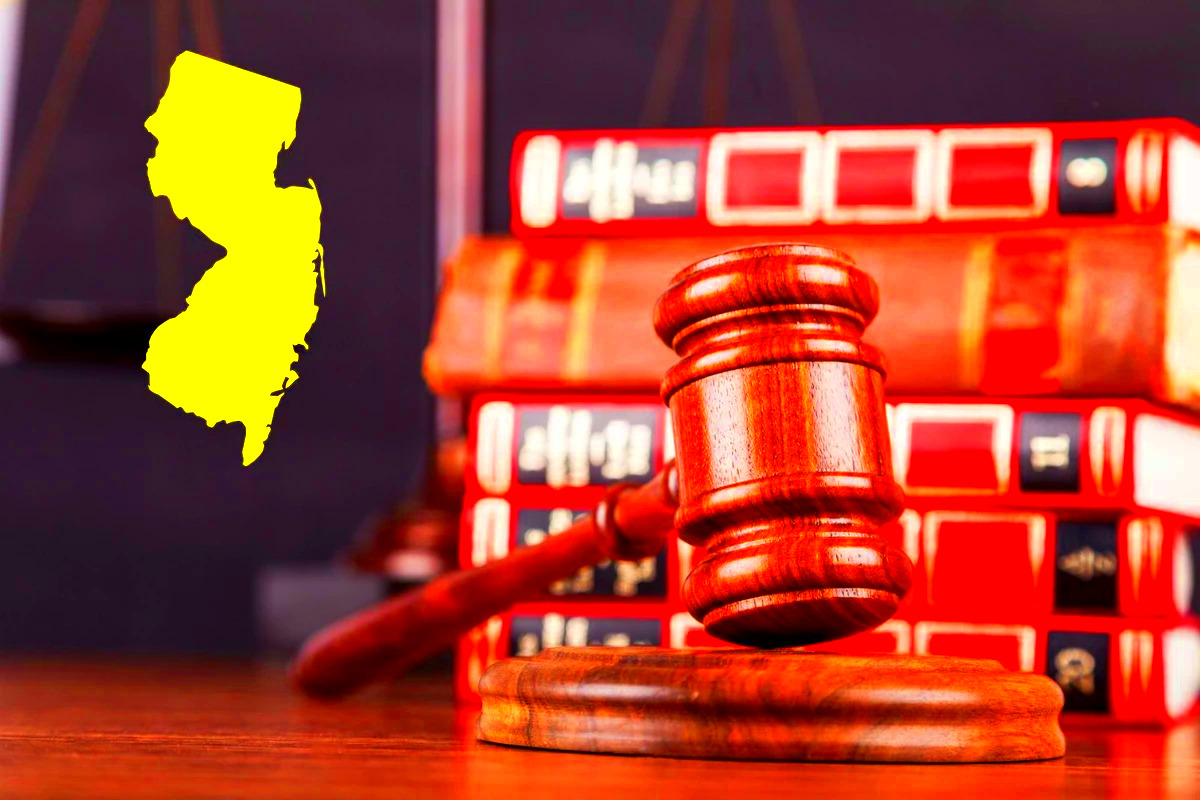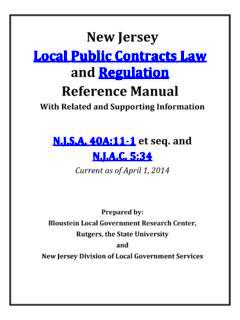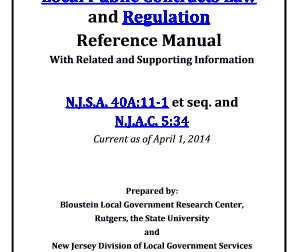NJ Local Public Contracts Law Explained
NJ Local Public Contracts Law governs how local government entities in New Jersey can enter into contracts for public projects. This law ensures transparency, fairness, and accountability in the procurement process, providing a framework that protects public interests while promoting competition among vendors. Understanding this law is crucial for contractors, public officials, and taxpayers alike, as it lays out the rules for bidding, awarding contracts, and fulfilling obligations.
Overview of Public Contracts

Public contracts refer to agreements made by government entities for services, goods, or construction. These contracts are essential for ensuring that public projects are completed efficiently and effectively. Here are some key points to consider:
- Purpose: Public contracts are designed to serve the community, providing necessary infrastructure, services, and goods.
- Types of Contracts: They can include construction contracts, service contracts, and supply contracts, each with specific requirements and regulations.
- Funding: Most public contracts are funded by taxpayer money, emphasizing the need for careful management and oversight.
- Regulations: Local, state, and federal laws govern public contracts to ensure fair competition and prevent fraud.
In New Jersey, public contracts must follow specific bidding processes and adhere to regulations that ensure equal opportunities for all vendors.
Key Provisions of NJ Local Public Contracts Law
The NJ Local Public Contracts Law contains several key provisions aimed at regulating how contracts are awarded and managed. Here are some essential aspects:
- Bidding Thresholds: The law establishes financial thresholds that determine when a public contract must be publicly advertised and bid upon. Contracts above a certain amount require a formal bidding process.
- Competitive Bidding: Most contracts must be awarded through competitive bidding to ensure fairness and transparency. This process allows multiple vendors to submit proposals.
- Public Opening of Bids: Bids must be publicly opened at a designated time and location, allowing for transparency and scrutiny of the bidding process.
- Qualifications and Certifications: Vendors may be required to provide proof of qualifications and certifications to ensure they can fulfill the contract requirements.
- Contract Award: Contracts are awarded to the lowest responsible bidder who meets the requirements, promoting fairness and cost-effectiveness.
Understanding these key provisions helps ensure compliance with the law and fosters trust in public contracting processes.
Types of Public Contracts in New Jersey
In New Jersey, public contracts can be categorized into several types, each serving different purposes within local government projects. Understanding these types is important for contractors looking to engage in public work.
- Construction Contracts: These are agreements for building projects, such as roads, bridges, and public buildings. They often require adherence to strict safety and quality standards.
- Service Contracts: This category covers a wide range of services provided to public entities, including maintenance, consulting, and professional services like legal or financial advice.
- Supply Contracts: These contracts involve the procurement of goods and materials needed for public projects, such as equipment, supplies, and technology.
- Lease Contracts: Local governments may enter into leases for equipment or facilities to meet temporary or long-term needs without purchasing assets outright.
- Public-Private Partnerships (PPPs): These agreements involve collaboration between public agencies and private companies to deliver services or projects, often aimed at enhancing efficiency and reducing costs.
Each type of public contract has specific regulations and procedures that must be followed, making it essential for vendors to understand the requirements for their particular area of expertise.
Bid Process and Requirements
The bidding process is a crucial aspect of public contracts in New Jersey, ensuring fairness and transparency. Here’s how it generally works:
- Notice of Bid: The local government issues a notice announcing the need for a contract, detailing the project scope, timeline, and bidding process.
- Submission of Bids: Interested contractors prepare and submit their bids, including detailed proposals outlining their approach, qualifications, and costs.
- Public Opening: Bids are opened publicly at a designated time, allowing anyone to witness the process. This promotes transparency.
- Evaluation: The submitted bids are evaluated based on criteria outlined in the bid notice. Factors include price, experience, and compliance with specifications.
- Awarding the Contract: The contract is typically awarded to the lowest responsible bidder who meets all requirements. Notification is sent to all bidders, and the awarded contractor begins the project.
These steps ensure that the bidding process is fair and competitive, providing equal opportunities for all qualified vendors.
Common Issues in Public Contracting
While the public contracting process is designed to be fair and transparent, several common issues can arise, leading to challenges for both contractors and public agencies. Here are some of the most frequent problems:
- Bid Rigging: This illegal practice occurs when contractors collude to fix prices or divide projects among themselves, undermining fair competition.
- Disputes Over Contract Terms: Ambiguities in contract language can lead to disagreements between contractors and public agencies, often resulting in costly legal battles.
- Failure to Meet Deadlines: Delays in project completion can arise from various factors, including poor planning or unexpected challenges, affecting the overall project timeline.
- Non-Compliance with Regulations: Contractors may inadvertently fail to comply with specific local, state, or federal regulations, leading to penalties or contract termination.
- Lack of Transparency: If the bidding process lacks transparency, it can erode public trust and lead to accusations of favoritism or corruption.
Addressing these issues requires clear communication, thorough planning, and adherence to established regulations throughout the contracting process.
Enforcement and Compliance
Enforcement and compliance are critical aspects of NJ Local Public Contracts Law, ensuring that all parties involved adhere to established regulations. The law not only sets the rules but also provides mechanisms for oversight and accountability.
- Role of the Local Government: Local governments are responsible for monitoring compliance with contract terms. They must ensure that contractors meet their obligations and adhere to applicable laws.
- Inspection and Audits: Government entities may conduct regular inspections and audits of public projects to verify compliance with contractual agreements and safety standards.
- Reporting Violations: If a contractor fails to comply with the contract or the law, local agencies can report violations to the appropriate authorities. This can lead to penalties, including fines or disqualification from future bids.
- Legal Action: In cases of serious non-compliance, local governments may pursue legal action against the contractor, seeking damages or specific performance.
- Transparency Measures: Public agencies often implement transparency measures, such as posting contracts and bid results online, to promote accountability and public trust.
Ensuring compliance is essential for maintaining the integrity of the public contracting process and safeguarding taxpayer interests.
Recent Changes to NJ Local Public Contracts Law
Like any legal framework, NJ Local Public Contracts Law evolves to address changing needs and concerns. Recent updates reflect ongoing efforts to improve the procurement process. Here are some key changes:
- Increased Bidding Thresholds: The state has adjusted financial thresholds for bidding, which may reduce the number of contracts subject to formal bidding processes, streamlining procurement for smaller projects.
- Enhanced Diversity Goals: New provisions aim to promote diversity in contracting, encouraging participation from minority-owned and women-owned businesses in public projects.
- Digital Bidding Processes: The law now supports electronic bidding platforms, making it easier for contractors to submit bids and for agencies to manage the process efficiently.
- Strengthened Penalties for Violations: Stricter penalties for non-compliance have been implemented to deter misconduct and ensure contractors adhere to legal requirements.
- Focus on Sustainability: Recent changes emphasize sustainability in public contracts, encouraging environmentally friendly practices and materials in project execution.
These changes reflect the state’s commitment to improving public contracting processes and ensuring they meet the needs of modern governance.
FAQs about NJ Local Public Contracts Law
Understanding NJ Local Public Contracts Law can be complex, so here are some frequently asked questions to help clarify key points:
- What is the purpose of NJ Local Public Contracts Law?
The law ensures fair and transparent bidding processes for public contracts, protecting public interests and promoting competition among vendors. - Who is affected by this law?
Contractors, public agencies, and taxpayers are all impacted by the provisions and requirements set forth in the law. - What happens if a contractor fails to comply with the law?
Non-compliance can lead to penalties, including fines, disqualification from future contracts, or legal action. - Are there exceptions to the bidding requirements?
Yes, certain situations, like emergency contracts or specific professional services, may be exempt from the formal bidding process. - How can I find information about upcoming bids?
Local governments typically post bid announcements on their official websites or through public notices, providing details on upcoming projects.
These FAQs aim to clarify some common concerns and provide a better understanding of the NJ Local Public Contracts Law.
Conclusion on Understanding NJ Local Public Contracts Law
Understanding NJ Local Public Contracts Law is essential for anyone involved in public contracting, including contractors, government officials, and taxpayers. This law establishes a framework that promotes transparency, fairness, and accountability in the procurement process. By being aware of the types of public contracts, the bidding process, and common challenges, stakeholders can better navigate the complexities of public contracting. Additionally, staying informed about recent changes ensures that all parties remain compliant and can take advantage of new opportunities. Ultimately, a solid grasp of this law fosters trust in public institutions and enhances the overall effectiveness of government projects, ensuring that taxpayer dollars are used efficiently and responsibly.


